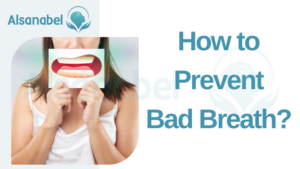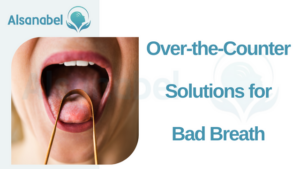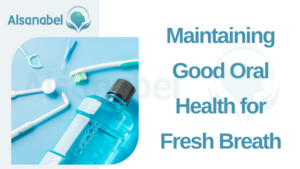What Causes Bad Breath?
Bad breath, medically known as halitosis, can be an embarrassing and bothersome issue. While it is normal to have temporary bad breath after consuming certain foods or beverages, persistent bad breath can indicate an underlying issue. This article will explore the common causes of bad breath and how medical conditions can contribute to this problem.
Common Causes of Bad Breath
- Poor Oral Hygiene:Neglecting proper oral care, such as brushing and flossing, can allow bacteria to build up in your mouth, leading to bad breath.
- Food and Drink:Certain foods like onions, garlic, and coffee can leave a lingering odor in your mouth. Additionally, consuming alcohol and smoking can contribute to bad breath.
- Dry Mouth:Saliva helps to cleanse your mouth and neutralize acids produced by bacteria. Having a dry mouth can result in bad breath as it reduces saliva production.
- Poor Digestion:Digestive issues such as acid reflux and gastrointestinal conditions can cause stomach acids to flow back up into your mouth, resulting in an unpleasant odor.
Medical Conditions and Bad Breath
- Gum Disease:Persistent bad breath can be a sign of gum disease, also known as periodontal disease. This condition occurs when bacteria build up in the pockets around the gums, leading to inflammation and an unpleasant odor.
- Respiratory Infections:Infections in the respiratory tract, such as sinusitis, bronchitis, or tonsillitis, can contribute to bad breath. The bacteria or mucus associated with these infections can produce an unpleasant smell.
- Systemic Diseases:Certain systemic diseases, such as diabetes, liver disease, and kidney problems, can cause changes in your breath odor. These conditions can affect the chemicals present in your breath, resulting in an unpleasant smell.
If you are concerned about persistent bad breath, it is important to consult a dentist or medical professional. They can help determine the underlying cause and recommend appropriate treatment. In the meantime, maintaining good oral hygiene, staying hydrated, and avoiding foods that contribute to bad breath can help alleviate the issue.
How to Prevent Bad Breath?
Bad breath, also known as halitosis, can be a persistent and embarrassing issue. While occasional bad breath after consuming certain foods or beverages is normal, chronic bad breath may indicate an underlying problem. This article will explore the common causes of bad breath and provide tips on how to prevent and manage it effectively.

Tips for Maintaining Fresh Breath
To prevent or minimize bad breath, follow these simple yet effective tips:
- Maintain Good Oral Hygiene:Brush your teeth at least twice a day, preferably after meals, and floss daily. Regular brushing and flossing help remove plaque and food particles that can lead to bad breath. Additionally, don’t forget to clean your tongue as bacteria can accumulate on its surface.
- Stay Hydrated:Drink plenty of water throughout the day to keep your mouth moist. Dry mouth is a common cause of bad breath, as it reduces saliva production, which helps cleanse the mouth and neutralize acids produced by bacteria.
- Avoid Foods and Beverages that Contribute to Bad Breath:Certain foods and drinks, such as onions, garlic, coffee, and alcohol, can leave a lingering odor in your mouth. Limiting or avoiding these items can help prevent bad breath.
- Chew Sugar-Free Gum or Use Breath Mints:Chewing sugar-free gum or using breath mints can stimulate saliva production, which helps wash away bacteria and freshen your breath. Look for products that contain xylitol, a natural sweetener that can help reduce the risk of cavities.
- Visit Your Dentist Regularly:Regular dental check-ups are essential for maintaining good oral health and preventing bad breath. Your dentist can identify and treat any underlying dental issues, such as gum disease or tooth decay, which can contribute to bad breath.
Oral Hygiene Practices and Bad Breath
Poor oral hygiene is one of the leading causes of bad breath. Neglecting proper oral care allows bacteria to build up in your mouth, leading to unpleasant odors. To maintain good oral hygiene, brush your teeth using fluoride toothpaste for two minutes at least twice a day. Don’t forget to replace your toothbrush every three to four months or sooner if the bristles become frayed.
In addition to regular brushing, floss daily to remove plaque and food particles from between your teeth and along the gumline. Consider using an antimicrobial mouthwash to kill bacteria and freshen your breath. Cleaning your tongue with a tongue scraper or brushing it gently with your toothbrush can also help eliminate bacteria that contribute to bad breath.
By adopting these simple oral hygiene practices, staying hydrated, and following a healthy diet, you can effectively prevent and manage bad breath, promoting not only good oral health but also fresh and pleasant breath. Remember, if bad breath persists despite your efforts, it is crucial to consult a dentist or medical professional to identify and address any underlying issues.
The Top Natural Antibiotics for Tooth Infections 2023
Natural Remedies for Bad Breath
Herbs and Spices for Fresh Breath
There are several herbs and spices that can help freshen your breath naturally. These remedies not only mask the odor but also target the underlying causes of bad breath. Here are some options to consider:
- Parsley:Chewing on a sprig of parsley after meals can help combat bad breath. Parsley contains chlorophyll, which acts as a natural deodorizer.
- Cardamom:Chewing on cardamom seeds or using cardamom powder in your meals can help freshen your breath. It has antimicrobial properties that fight bacteria in the mouth.
- Cloves:Cloves have antibacterial properties and a strong aroma that can mask bad breath. You can chew on a clove after meals or use clove oil for added freshness.
- Mint:Mint leaves or mint oil can provide instant fresh breath. Mint has natural antiseptic properties that kill bacteria and leave a cooling sensation in your mouth.
DIY Mouthwashes and Rinses
Creating your own mouthwash or rinse using natural ingredients can be an effective way to combat bad breath. Here are a few simple recipes you can try:
- Baking Soda Rinse:Mix half a teaspoon of baking soda with warm water and use it as a mouth rinse. Baking soda helps neutralize acids in the mouth and kill bacteria that cause bad breath.
- Apple Cider Vinegar Rinse:Dilute one tablespoon of apple cider vinegar in a cup of water and use it as a rinse after brushing your teeth. Apple cider vinegar has antibacterial properties that can help eliminate odor-causing bacteria.
- Tea Tree Oil Mouthwash:Add a few drops of tea tree oil to a glass of warm water and use it as a mouthwash. Tea tree oil has antimicrobial properties that can combat bacteria in the mouth.
It’s important to note that while these natural remedies can help freshen your breath, they should not replace regular oral hygiene practices. Brushing twice a day, flossing daily, and visiting your dentist regularly are still essential for maintaining good oral health and preventing bad breath.
By incorporating herbs and spices into your diet and using homemade mouthwashes and rinses, you can effectively combat bad breath naturally. Remember to consult a dentist or medical professional if bad breath persists despite your efforts, as it may indicate an underlying dental or health issue.
Over-the-Counter Solutions for Bad Breath
Bad breath, also known as halitosis, can be a source of embarrassment and discomfort. Fortunately, there are several over-the-counter solutions available that can help combat bad breath effectively. From mouthwashes and sprays to chewing gums and breath mints, these products offer a convenient way to freshen your breath on the go.

Mouthwashes and Sprays
One of the most common solutions to combat bad breath is the use of mouthwashes and sprays specifically designed to target the underlying causes of the problem. These products often contain antibacterial ingredients that help kill the bacteria responsible for producing foul-smelling compounds in the mouth. They also provide a refreshing sensation and leave your breath smelling fresh.
When choosing a mouthwash or spray, look for those that are alcohol-free and contain ingredients such as zinc, chlorhexidine, or cetylpyridinium chloride. These substances have been shown to effectively reduce bad breath and provide a long-lasting fresh feeling. It’s important to follow the instructions on the packaging and use these products as directed for optimal results.
Chewing Gums and Mints
Chewing gums and breath mints are another popular option for combating bad breath on the go. These products work by promoting saliva production, which helps wash away bacteria and food particles in the mouth. Additionally, many gums and mints contain ingredients like menthol or peppermint oil, which provide a pleasant and cooling sensation, leaving your breath feeling fresh.
When choosing a gum or mint, opt for those that are sugar-free to prevent dental cavities. Sugar-free options usually contain sweeteners like xylitol, which not only tastes sweet but also helps reduce the growth of bacteria in the mouth. Keep a pack of sugar-free gum or breath mints handy, and pop one in whenever you need a quick refresh.
It’s important to note that while over-the-counter solutions can provide temporary relief from bad breath, they may not address the root cause of the problem. If you consistently experience it despite using these products, it’s recommended to consult a dentist or healthcare professional to rule out any underlying dental or health issues.
In addition to using these products, maintaining good oral hygiene practices, such as brushing twice a day, flossing daily, and visiting your dentist regularly, is essential for preventing bad breath. By combining over-the-counter solutions with proper oral care, you can effectively combat bad breath and enjoy a fresh and confident smile.
When to Seek Professional Help
Dental Check-Ups
Regular dental check-ups are essential for maintaining good oral health and addressing any potential issues, including bad breath. Dentists can identify and treat dental conditions that may be contributing it, such as gum disease, tooth decay, or oral infections. Additionally, they can provide personalized recommendations for improving oral hygiene and preventing bad breath.
If you experience persistent bad breath despite implementing good oral hygiene practices and using over-the-counter solutions, it is recommended to schedule a dental appointment. Your dentist will conduct a thorough examination, assess your oral health, and address any underlying issues that may be causing the problem. They may recommend professional dental cleanings, specialized treatments, or referrals to other healthcare professionals if necessary.
Consulting a Healthcare Professional
While bad breath is often caused by oral factors, it can also be a symptom of underlying health conditions. If your dentist determines that your oral health is not the cause of it, they may refer you to a healthcare professional for further evaluation. The healthcare professional can investigate other potential causes, such as sinus infections, respiratory conditions, gastrointestinal issues, or metabolic disorders.
In some cases, persistent bad breath may be a sign of an underlying medical condition that requires specialized treatment. It is important to consult a healthcare professional to rule out any serious health issues and receive appropriate care.
Remember, seeking professional help does not mean you have failed in your oral hygiene efforts. It can have various causes, and some may require medical intervention. By working with dental and healthcare professionals, you can effectively address the root cause of bad breath and find the most suitable solutions for your specific situation.
Maintaining Good Oral Health
Maintaining good oral health is crucial for preventing bad breath. Here are some tips to keep your mouth fresh and healthy:

- Brush and floss regularly:Brush your teeth at least twice a day for two minutes each time. Use a fluoride toothpaste and a soft-bristled toothbrush. Don’t forget to floss once a day to remove plaque and food particles from between your teeth.
- Clean your tongue:Use a tongue scraper or the bristles of your toothbrush to gently clean your tongue. Bacteria can accumulate on the tongue and contribute to it.
- Stay hydrated:Drink plenty of water throughout the day to keep your mouth moist and wash away odor-causing bacteria.
- Avoid tobacco products:Smoking and chewing tobacco can cause bad breath, stain your teeth, and increase the risk of gum disease.
- Limit foods that cause bad breath:Certain foods, such as onions, garlic, and spicy foods, can contribute to it. Try to minimize their consumption or use mouthwash after eating them.
- Attend regular dental check-ups:Visit your dentist at least twice a year for professional cleanings and check-ups. This will help identify any oral health issues early and prevent them from causing it.
